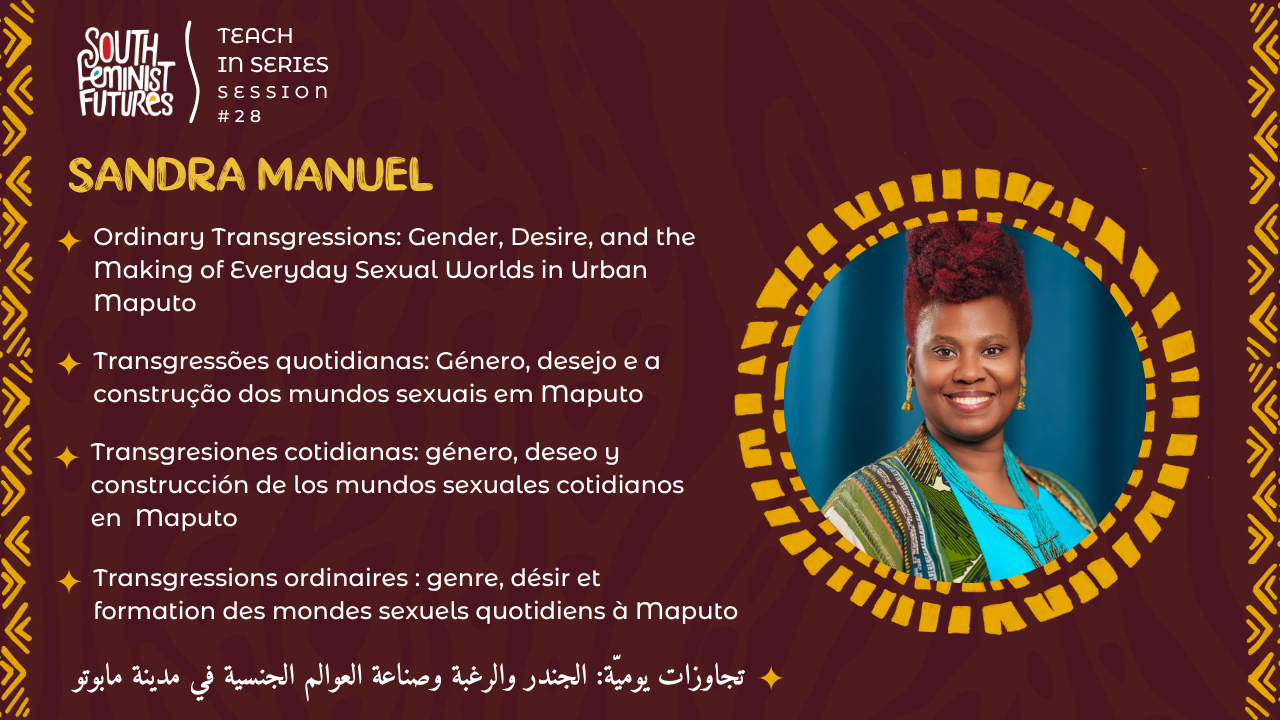On October 30th, 2025, we held the 28th session of our Political Economy Teach-in Series: “Ordinary Transgressions: Gender, Desire, and the Making of Everyday Sexual Worlds in Urban Maputo” with Sandra Manuel.
This teach-in revisited two decades of ethnographic work on sexuality in Mozambique, exploring how gendered and sexual practices — from the “normalisation of sexual appetite” among urban youth to the affective labour of secrecy and pleasure — unsettle dominant narratives framing African sexuality through crisis or morality. In Maputo and beyond, pleasure, fidelity, and desire emerge as sites of negotiation where intimacy both reproduces and subverts heteronormative norms. Women and men navigate class aspirations and double standards through discretion, concealment, and affective balance. Engaging feminist theory from the global South, Sandra Manuel argued that sexuality is an everyday terrain of agency and creativity. Disobedient desires and ordinary transgressions become feminist sites of knowledge-making: where pleasure becomes critique, and the everyday becomes a theory of freedom.
Sandra Manuel is Assistant Professor at the University Eduardo Mondlane (UEM) and Researcher at Kaleidoscopio – Public Policy and Culture, is a Mozambican anthropologist whose work reimagines how we understand gender, sexuality, and everyday life in Africa. Her research — spanning sexuality, gender, health, and urban change — challenges normative ideas of intimacy, the body, and belonging, and more recently explores the social meanings of food and consumption. Head of the Department of Archaeology and Anthropology at UEM and co-editor of Feminist Africa, Sandra bridges scholarship and public engagement. From 2012 to 2020, she advised the UEM Vice-Rector in reshaping the university’s research strategy. In 2025, The Africa Report named her among the Top 10 African academics to follow, recognising her as a leading voice rethinking the intersections of knowledge, gender, and culture.
Our South Feminist Political Economy Teach-in Series aims to strengthen intergenerational dialogue and build a cross-regional feminist constituency. The series covers various topics to interrogate and strengthen understanding of issues shaping conditions in the Global South.
We have curated a special reading list of resources on the topic of this session, available on our South Feminist Knowledge Hub. It is designed to deepen your understanding of the themes and inspire meaningful discussion – featuring powerful contributions from authors and thinkers across the Global South.
